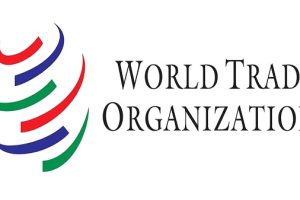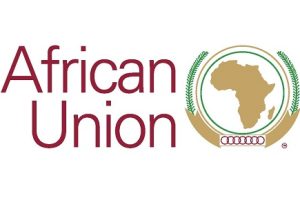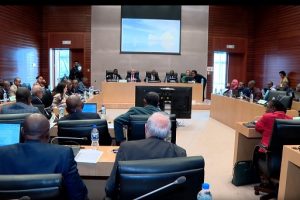BY DARGIE KAHSAY
Following the military takeover in Sudan, which dissolved the civilian rule of the sovereign council of Sudan’s Transitional Government on Monday, a lot of concerns and statements are flooding from all corners of the world. After the military takeover, the Transitional Sovereign Council’s Prime Minister, Abdalla Hamdok was reportedly detained and moved to an undisclosed location.
On Monday afternoon, the Intergovernmental Authority for Development (IGAD) Executive Secretary announced that it is following Sudan’s situation closely and strongly condemns the “attempt to undermine the transitional government and argued all parties to exercise utmost restraint.”
The Government of Ethiopia through its Ministry of Foreign Affairs also called on all parties of Sudan “for calm and de-escalation” to exert every effort towards a peaceful end to the crises. “The Government of Ethiopia fully supports the completion of Sudan’s transition to democracy and the respect for the Constitutional Document of the Transitional Period,” the Ethiopian Government on its statement announced.
Ethiopia strongly underlines the need for the respect of the sovereign aspirations of the people of Sudan and the non-interference of external actors in the internal affairs of Sudan, according to the statement. Ethiopia believes that Sudanese people are capable of solving their internal political differences and any external intervention in the country’s internal affairs only could complicate the problem. Hence, Ethiopia calls the Sudanese parties to solve their problems peacefully and any external actor to back off from meddling in the internal affairs of Sudan.
Sharing the fears of external interference in the internal affairs of Sudan, Political Science and International Relations Instructor at Dire Dawa University and Political Researcher, Surafel Getahun said that any external intervention on the current situation in Sudan would worsen and complicate the situation. He believes that even Monday’s new development in Sudan never happens without external intervention.
The Political Scholar argued that Sudan is the current chair of the Intergovernmental Authority for Development (IGAD) and an important actor of regional politics. Hence, the current development and instability in Sudan may affect the Horn of Africa region as a whole and Ethiopia in particular. For him, any external intervention in Sudan’s internal affairs would only exacerbate the tense situation in Sudan and complicate the regional stability in general.
Surafel argued that the political change in Sudan two years ago came with efforts and struggles of the people of Sudan which removed the former president Omar Hassen Albashir and started a smooth transition to democracy and stability. The political change created hope for the people of Sudan and the international community since a people-led political environment was started on the creation in Sudan. But, the current military takeover may lead Sudan to further chaos and instability.
“I think the people of Sudan may not easily accept the removal of the civilian rule of the Transitional Sovereign Council by the Military wing” the scholar argued adding “for me the military takeover happens with the backing of external actors, mainly Egypt” Sudan was on a smooth transition to democracy and development during the past two years, Surafel stated adding Egypt does not want to see developed, stable and democratic Sudan. Hence, to protect its interest, Egypt may be directly involved in the current military takeover cooperating with the military wing.
“In my view, the external intervention on the current political situation in Sudan is high” the instructor stated adding that “external powers are working to keep their national interest by supporting the military wing of Sudan” It is clear that the current political change is not in the interest of the people of Sudan and that is why the people are starting demonstrations on the streets to oppose the coup, he argued.
This indicates that Surafel added, the political situation of Sudan is hijacked by external actors at the expense of the people of Sudan. There are justifications to say the takeover happens in the interest of external actors, he argued. In the first place, there was an assassination attempt months ago against Prime Minister Abdellah Hamdock and the military and security officials of Egypt were repeatedly travelling to Khartoum.
Egypt is trying to complicate the regional situation of the Horn to disturb Ethiopia mainly to disrupt the construction of the Grand Ethiopian Renaissance Dam (GERD), he reiterated. Egypt is trying to use Sudan to achieve its interest, in this regard, the civilian rule of the Sudan Transitional Government remains a challenge for Egypt since it focuses on soft-diplomacy than the military wing. The trends so far were also indicators of any change in Sudan, he stressed, citing the “Nile Eagles-1 and 2” joint military training of both Sudan and Egypt as well as the frequent travel of Egyptian high profile military and security actors to Khartoum.
“The 1959 Nile Agreement was signed after the military takeover the civilian government in Sudan with the support of Egypt” Surafel stated adding “the current situation is also similar to that since Egypt is in dilemma due to the construction of the GERD, though it doesn’t have significant water shortage for Egypt” he argued. Hence, for him, the military takeover against the civilian government in Sudan is not an internal political interest-driven situation and needs attention.
Even during the past discussions on the GERD, since the civilian rule eyes on peaceful and diplomatic solutions with the African Union-led negotiations, Egypt forced the military wing to intervene in the situation to complicate the problem. For him, Sudan has internal problems in the Darfur and the Beja people around the Red Sea and the current problem within the central politics may complicate the situation to worsen it, he said.
“Any external intervention within this unstable political environment only further complicates the political situation of Sudan. So all external actors’ should refrain from meddling in Sudan’s political affairs,” he stated. For him, Sudan only needs concrete supports for a peaceful solution to the current problems through dialogue, he added.
The Chairperson of the African Union Commission, Moussa Faki Mahamat, on Monday called for the immediate resumption of consultations between civilians and military within the framework of the Political Declaration and the Constitutional Decree. The Chairperson reaffirms that dialogue and consensus is the only relevant path to save the country and its democratic transition.
He calls for the release of all arrested political leaders and the necessary strict respect of human rights.
The government of Ethiopia also expressed commitment, as always, to continue to stand firm with the democratic aspirations of the people of Sudan while the IGAD announced as the current chair and important member of IGAD, the organization is ready to support the transitional government to consolidate peace and democratic gains.
For Surafel, the AU, IGAD and Ethiopia’s calls are timely calls to stabilize Sudan and the region as a whole, but it needs practical support before it becomes complicated. If the problem in Sudan will continue, army trafficking, black-market, illegal human trafficking, refugee crises and humanitarian crises may worsen in the region. These are regional security threats and may destabilize the region.
For him, if the problem of Sudan is managed internally, it may solve easily and “I believe the people of Sudan can do that” but the problem for him is that the situation may not be free from external intervention. The regional organization IGAD and the AU should support the political actors of Sudan to solve their internal problems internally without any external pressure.
The Ethiopian Herald October 27/2021





